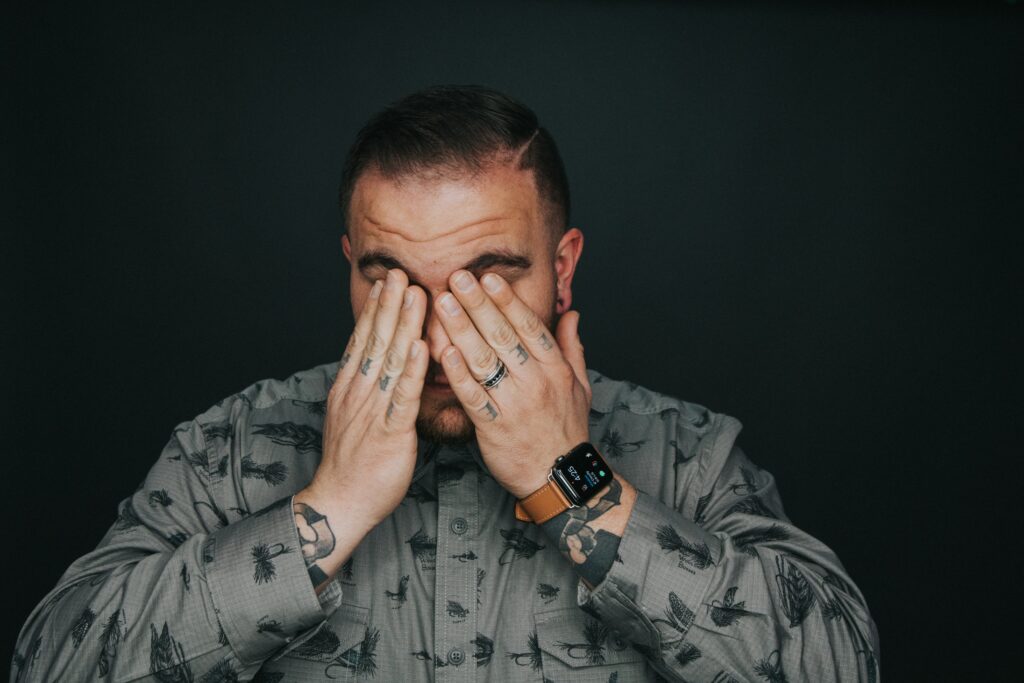“Dope sick” is a term used to describe the set of withdrawal symptoms that present when someone who is dependent on opiates like heroin or opioids like prescription painkillers discontinues or moderates use.
While withdrawal complications are seldom life-threatening, dope sickness can be extremely uncomfortable, and the risk of relapse increases if unmanaged. The severity and duration of these symptoms varies based on individual factors, the intensity and frequency of drug use, and whether or not the person engages with a supervised medical detox during the withdrawal process.
Need help getting addiction treatment?
Today, you will discover:
- What is dope sickness: dope sick meaning and consequences.
- What are the most common symptoms of dope sick?
- What does dope sick feel like?
- What helps with dope sickness?
- How long does dope sick last?
- How to get over being dope sick as effectively as possible by connecting with professional treatment.

What is Dope Sick?
What is dope sick? Being “dope sick” is a widely used term in the opioid community to describe the intense physical and psychological distress experienced when individuals addicted to opioids, like heroin, fentanyl, or prescription painkillers stop using them. Many people outside of the addiction community are unaware that the fear of going through this painful withdrawal process often acts as a significant barrier to recovery, even when someone’s life has been greatly affected by drugs.
Opioid withdrawal symptoms typically emerge within hours of the last drug use and reach their peak within 1 to 3 days. While most symptoms start to subside within a week, some may persist for weeks before fully dissipating.
Although withdrawal symptoms themselves are usually not life-threatening, they can be aggravating and potentially life-threatening. The specific withdrawal symptoms experienced can differ according to the type of opioid addiction and the duration of drug use.
What Does Opiate Withdrawal Feel Like?
Opiate withdrawal encompasses a range of physical and psychological symptoms that can be highly distressing for individuals going through the process. Why does withdrawal make you sick, then? Opiate withdrawal symptoms are a physical and psychological response from a system struggling to recalibrate in the absence of opioids.
Withdrawal symptoms can vary in intensity and duration based on several factors, including the specific opiate used, the duration of use, and individual differences. Here is an overview of the physical and psychological symptoms commonly experienced during opiate withdrawal:
Physical dope sick symptoms:
- Flu-like symptoms: Individuals often experience flu-like symptoms such as body aches, muscle cramps, and sweating.
- Gastrointestinal distress: Nausea, vomiting, diarrhea, and stomach cramps commonly occur during opiate withdrawal.
- Changes in body temperature: Fluctuations in body temperature, including chills and hot flashes, are frequently reported.
- Insomnia and fatigue: Sleep disturbances, insomnia, restlessness, and excessive fatigue, are prevalent during withdrawal.
- Elevated heart rate and blood pressure: Withdrawal can lead to increased heart rate, elevated blood pressure, and palpitations.
- Pupil dilation: Dilated pupils are a characteristic physical symptom of opiate withdrawal.
Psychological dope sick symptoms:
- Anxiety and irritability: Feelings of restlessness, anxiety, and irritability are commonplace during opiate withdrawal.
- Depression and dysphoria: Many individuals experience a profound sense of sadness, low mood, and anhedonia (loss of pleasure) during withdrawal.
- Cravings and obsession: Strong cravings for opioids can persist throughout the withdrawal period, leading to obsessive thoughts about drug use.
- Difficulty concentrating: Poor concentration, difficulty focusing, and cognitive impairment may manifest during withdrawal.
- Mood swings and emotional instability: Rapid mood swings, emotional instability, and heightened emotional sensitivity are frequently reported.
- Insomnia and sleep disturbances: Sleep disruptions, including insomnia, vivid dreams, and nightmares, can contribute to psychological distress during withdrawal.
These symptoms can vary both in severity and duration, and the specific experience may differ between individuals. Seeking professional medical assistance and support from addiction treatment specialists can greatly alleviate the discomfort and ensure a safer and more successful withdrawal process.
Treating opioid withdrawal and addiction requires a comprehensive approach that combines MAT (medication-assisted treatment) with counseling, behavioral therapies, and support groups. Medical detoxification manages withdrawal symptoms, while therapies like CBT (cognitive-behavioral therapy) address the psychological aspects of addiction. Holistic therapies and aftercare support play a crucial role in maintaining recovery. Personalized treatment plans, guided by addiction specialists, help individuals navigate the challenges of withdrawal and addiction, providing a path towards lasting sobriety.

“Dope Sick” FAQs
What does dope sick mean?
Dope sick refers to the unpleasant withdrawal symptoms experienced by individuals who abruptly stop using opioids or opiates after becoming physically dependent on the substance.
What is the medical term for dope?
The medical term for dope is illicit drugs or narcotics.
Why is it called dope?
The term “dope” originated as a slang term for drugs due to its association with the stupeyfing and intoxicating effects that drugs can produce. Dope is an American English borrowing from “doop”, the Dutch word for sauce.
When did dope become slang?
The slang term “dope” has been in use since the 1880s to describe opium. Dope became slang for other drugs like heroin, cocaine, and marijuana in the 1900s.

Get Treatment for Opioid Addiction at Renaissance Recovery
At Renaissance Recovery Center in Southern California, we focus on providing exceptional outpatient treatment for addictions to opioids, opiates, and other addictive substances.
If you require assistance with opioid withdrawal and detox, we can connect you with licensed medical detox facilities throughout Southern California. Detox addresses the issue of physical dependence on opioids, while connecting with ongoing treatment will help you tackle the psychological component of addiction. We offer a diverse range of outpatient treatment programs tailored to meet your specific needs. Whether you require a PHP (partial hospitalization program), an IOP (intensive outpatient program), or a more flexible outpatient program, get the support and structure you need to guide you towards lasting recovery.
We offer individualized and evidence-based addiction treatment that encompasses a holistic approach, empowering you with a whole-body approach to recovery from opioid addiction. MAT(medication-assisted treatment) is proven effective for treating opioid addiction. Individual counseling allows for personalized guidance, while psychotherapy helps you explore the underlying causes of addiction and develop healthier coping mechanisms. Group therapy sessions provide a supportive environment where you can connect with peers who understand your experiences and share valuable insights. We also offer family therapy sessions, enabling you and your loved ones to rebuild trust, improve communication, and foster a supportive network.
To take the first vital step towards a brighter future, we encourage you to reach out to our admissions team at 866.330.9449. Our compassionate staff is here to answer any questions you may have and guide you towards the most suitable treatment program for your unique needs. Together, we can overcome addiction and embark on a path towards lasting recovery.



